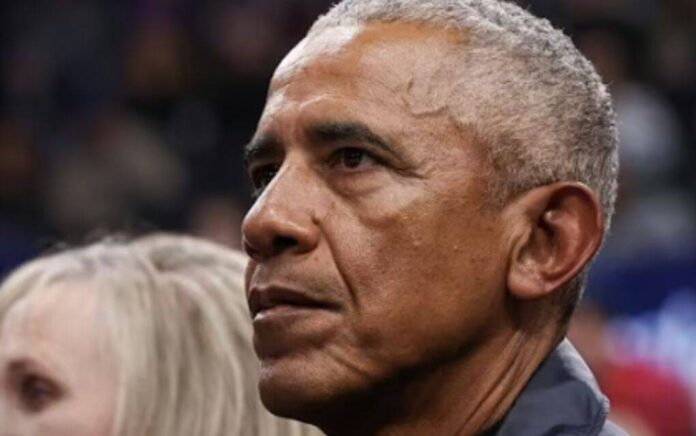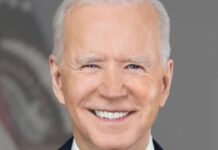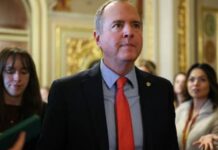
Obama thought he had glowing support from this group. But it turns out he’s dead wrong.
And Barack Obama slapped with an unexpected criticism by the last people he expected.
In Chicago’s historic South Side, the Obama Presidential Center, a sprawling 19.3-acre development in Jackson Park, has created a debate. Community leaders and longtime residents fear the project threatens the neighborhood’s identity, potentially pricing out families who have called this area home for generations.
The towering 225-foot concrete museum, a centerpiece of the development, is criticized for clashing with the area’s natural beauty, leaving locals grappling with rising costs.
“This is a monument to one man’s ego,” said Steve Cortes, a Chicagoan and former advisor to President Donald Trump, in an interview with the Daily Mail. He contrasted the center’s Brutalist design with Chicago’s celebrated architectural heritage, noting, “Look at the Reagan Library. It’s beautiful. This? There are almost no windows. What are they hiding?”
The Obama Foundation, which secured a 99-year lease for the public land in 2018 for just $10, vowed to breathe new life into the area. Former President Barack Obama emphasized that the project would not displace residents, aiming to balance economic growth and job creation with the preservation of affordable housing.
Yet, as construction creeps forward, costs have skyrocketed from an initial $330 million to an estimated $830 million in 2021, with no recent updates. The center, designed to celebrate Obama’s political legacy, will include a digital library, conference spaces, a gym, and an NBA-sized court, alongside being the home for the Obama Foundation.
For many residents, the project’s scale feels overwhelming. Ken Woodward, an attorney, described the museum as a “monstrosity” that disrupts Jackson Park’s once-lush landscape.
“It looks like this big piece of rock that just landed here out of nowhere in what used to be a really nice landscape of trees and flowers,” he told the Daily Mail. He and others worry about soaring prices, which could erode the neighborhood’s working-class.
Alderwoman Jeanette Taylor, who represents the area, has been vocal about these concerns. “Every time large development comes to communities, they displace the very people they say they want to improve it for. This was no different, and we’re living what is actually happening,” she said to the outlet.
While a 2020 agreement ensured 30% of new units on city-owned land would be affordable, her push for a comprehensive Community Benefits Agreement (CBA)—a binding contract to secure local hiring, affordable housing, and other protections—was not fully realized.
“The city of Chicago should have done a Community Benefits Agreement before the first shovel went into the ground, but they didn’t,” she said.
The proposed 250-room luxury hotel, led by investment firm head Allison Davis—Obama’s first boss after Harvard Law School—has become a flashpoint. Still under review, the hotel is seen as a catalyst for rising property values that could attract wealthier residents and investors, further straining affordability.
“When you got people’s rent going from $850 to $1,300 you’re telling people you don’t want them in the neighborhood,” Dixon Romeo, an organizer for the Obama Community Benefits Agreement Coalition, said to NBC Chicago in April.
Community activists like Kyana Butler of Southside Together echo these concerns. “It’s pretty huge and monstrous,” Butler told the Daily Mail, suggesting a smaller, less costly design could have preserved the community’s fabric.
Tyrone Muhammad, director of Ex-Cons for Community and Social Change and a 2026 Illinois Senate candidate, called the project “truly the Tower of Babel.” He noted the burden of rising property taxes, sharing that his building’s owner is considering walking away.
“It’s disingenuous and hypocritical to take park space away from people and then not involve them in what takes its place. The move violates common decency,” he said.
The project’s diversity initiatives have also drawn scrutiny. President Donald Trump, in May, linked construction delays to what he called politically driven decisions, claiming the project’s “ambitious goals” for diverse suppliers—35% of contracts allocated to minority-based enterprises—prioritized ideology over efficiency.
“Look, President Obama, if he wanted help, I’d give him help because I’m a really good builder and I build on time, on budget. He’s building his library in Chicago. It’s a disaster,” Trump stated. A $40.75 million lawsuit filed in 2025 by a minority contractor against the project’s structural engineer further highlighted tensions, with claims that the contractor’s lack of qualifications caused delays.
Stay tuned to The Federalist Wire.



















